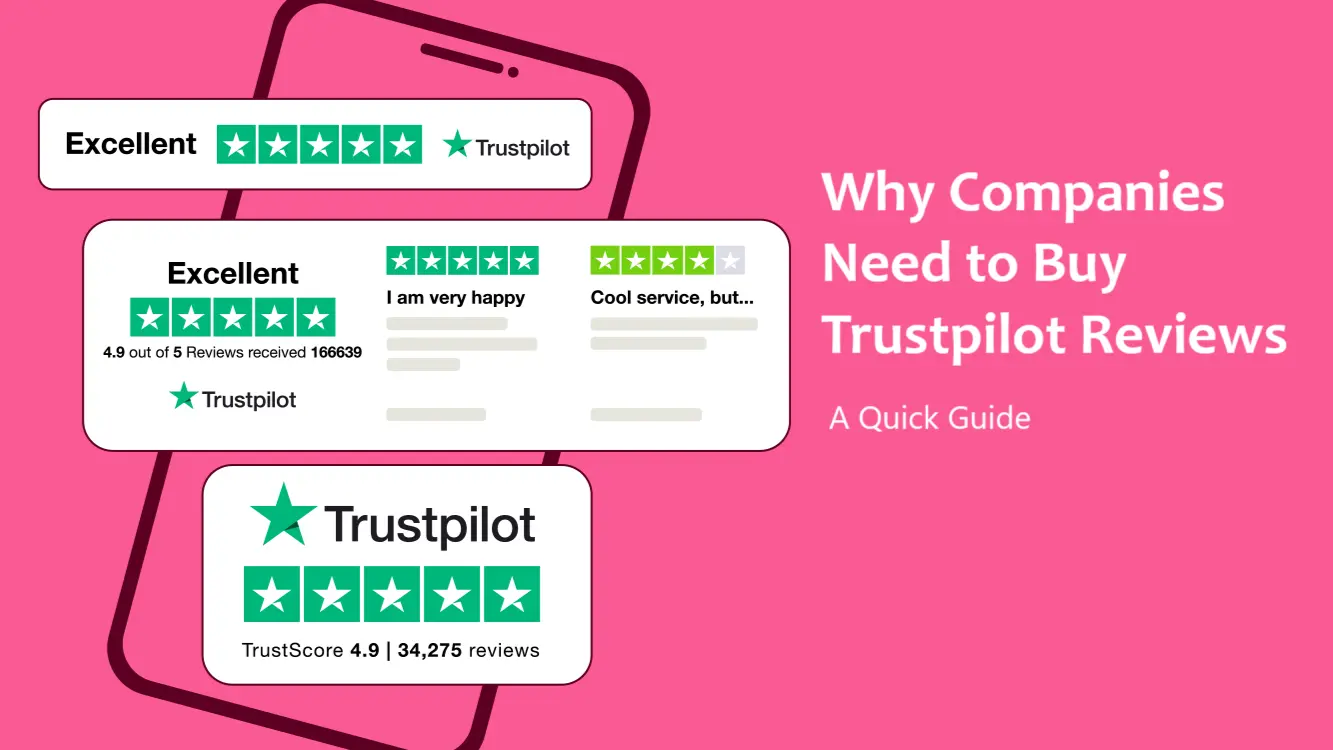In today’s very competitive online world, online reviews play a crucial role in shaping consumer decisions. Platforms like Trustpilot are often seen as the gold standard for establishing a company’s credibility. Positive reviews on such platforms not only boost a company’s reputation but also directly impact sales, visibility, and customer trust. While some businesses might consider buying Trustpilot reviews to accelerate their growth, it’s essential to weigh the potential benefits against the ethical and long-term implications. Let’s delve into why companies might turn to this controversial practice and explore better alternatives.
Why Businesses Consider Buying Trustpilot Reviews
Building Trust Quickly
For new businesses or those with limited customer feedback, establishing trust can be challenging. A high Trustpilot score with numerous positive reviews can make potential customers feel more confident about choosing a company. By presenting an image of reliability and quality, businesses can build trust rapidly.
Improving Brand Image
A well-maintained online reputation is a powerful tool. Positive reviews significantly enhance a company’s brand image, helping it stand out in a crowded marketplace. Customers are more likely to engage with businesses that project a favorable impression.
Boosting Sales Conversions
Research shows that consumer decisions are heavily influenced by online reviews. According to Econsultancy, customer reviews are 12 times more trusted than manufacturer descriptions and can result in an 18% increase in sales. Companies with high Trustpilot ratings are more likely to convert visitors into paying customers.
Gaining a Competitive Advantage
In highly competitive industries, a robust Trustpilot profile can set a business apart. Companies with higher ratings and more reviews often appear more trustworthy compared to their competitors, giving them an edge in attracting customers.
Improving SEO Rankings
Search engines often factor in customer reviews when determining rankings. Positive Trustpilot reviews can improve a company’s visibility online, leading to increased traffic and potential sales. This SEO boost is another reason why some businesses might be tempted to buy reviews.
Risks and Ethical Concerns
While the potential benefits of buying Trustpilot reviews are evident, the practice is fraught with risks and ethical issues. Trustpilot’s fraud detection systems are designed to identify and remove fake reviews. Here’s why buying reviews can backfire:
Detection by Trustpilot
Trustpilot actively monitors for fraudulent activities. If fake reviews are detected, they are promptly removed, and the company’s account may be penalized or suspended. This can damage a business’s reputation rather than enhancing it.
Loss of Credibility
Customers value authenticity. If a business is discovered to have bought reviews, it risks losing the trust of its audience. This loss of credibility can have long-term repercussions, including decreased sales and a tarnished brand image.
Legal Implications
In some jurisdictions, buying fake reviews is illegal and could result in legal actions or fines. Businesses must consider the potential legal consequences before engaging in such practices.
Not a Sustainable Strategy
While buying reviews might provide a temporary boost, it is not a viable long-term solution. To maintain a positive reputation, businesses need to focus on delivering exceptional customer experiences and earning genuine reviews.
Better Alternatives to Buying Trustpilot Reviews
Ethical and effective strategies can help businesses improve their Trustpilot ratings without resorting to unethical practices. Here are some recommended approaches:
Encourage Genuine Reviews
After a purchase, actively request customers to leave honest reviews. This can be done through email reminders, in-app prompts, or follow-up messages. Genuine feedback from satisfied customers builds credibility.
Address Negative Feedback
Negative reviews are an opportunity to showcase excellent customer service. Respond to criticism promptly and professionally, demonstrating a commitment to customer satisfaction. This approach can turn dissatisfied customers into loyal advocates.
Focus on Customer Service
Delivering high-quality products and services naturally leads to positive reviews. Exceeding customer expectations is the most reliable way to build a strong Trustpilot profile.
Proactively Solicit Feedback
Incorporate feedback mechanisms into your customer journey. For example, post-purchase surveys or feedback forms can encourage customers to share their experiences.
Monitor and Improve
Regularly monitor reviews to identify areas for improvement. Use customer feedback to refine your products, services, and processes, ensuring a better experience for future customers.
Final Thoughts
While the temptation to buy Trustpilot reviews may stem from the desire for quick results, the risks and ethical implications make it an ill-advised strategy. Trustpilot’s platform thrives on genuine customer feedback, which is crucial for fostering trust and long-term success. Instead of resorting to unethical practices, businesses should invest in providing excellent customer experiences and encouraging authentic reviews.
By focusing on organic growth, companies can build a reputation that is not only credible but also sustainable. Trust is the cornerstone of any successful business, and genuine customer reviews remain the most effective way to achieve it. While positive reviews can undoubtedly boost a company’s fortunes, the path to success lies in earning them the right way.

